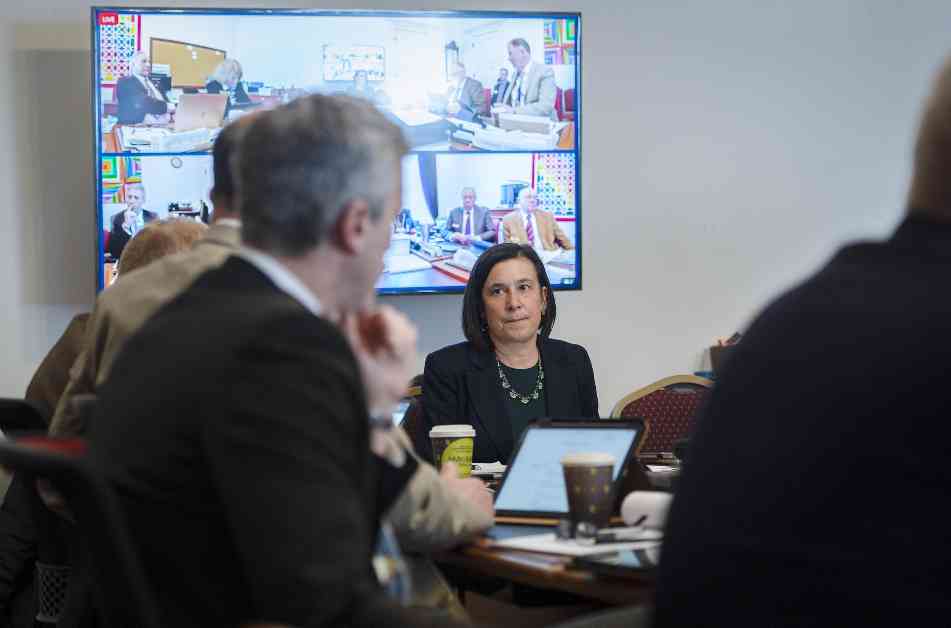President Donald Trump has been busy signing executive orders since taking office last month, with over 60 already under his belt. These orders cover a wide range of topics, from international aid to trade policy to government DEI programs. Vermont officials are closely monitoring these executive actions to understand how they may impact the state.
Secretary of Administration Sarah Clark recently addressed the House Committee on Appropriations, expressing the state’s cautious approach to Trump’s executive orders. With Vermont relying on federal funding for various programs, including school lunches, Medicaid, and infrastructure projects, officials are actively tracking about 45 of Trump’s orders to assess their potential impact.
One of the challenges Vermont faces is interpreting the sometimes vague language and sweeping declarations found in these executive orders. For example, when discussing orders aimed at eliminating DEI initiatives, Clark admitted that it was unclear how these orders would affect the state’s core programs. She emphasized the importance of understanding the facts and not simply reacting to directives from the federal government.
Clark compared the uncertainty surrounding Trump’s orders to preparing for a federal government shutdown, advising department heads to secure all available federal funds. This proactive approach ensures that Vermont is financially prepared for any sudden changes that may arise.
Despite the chaos emanating from the White House, Clark emphasized the need for Vermont to stay focused on its priorities. By saving energy and avoiding getting entangled in federal turmoil, the state can remain committed to serving its residents effectively.
In the know
Governor Phil Scott’s budget recommendations include a proposal to explore converting the Northeast Correctional Complex in St. Johnsbury into a substance use treatment-focused prison. This initiative, costing $300,000, aims to address the prevalent substance use issues among incarcerated individuals in Vermont. Commissioner of the Vermont Department of Corrections, Nick Deml, highlighted the importance of creating the state’s first specialized prison to address these challenges effectively.
Representative Troy Headrick is hosting a panel to discuss the controversial topic of Vermont’s recognition of four groups claiming to be descended from historic Abenaki people. The panel will feature leaders from the Odanak First Nation in Quebec, who argue that some members of these Vermont groups are not truly Indigenous and are appropriating Abenaki identity. Headrick believes that Vermont’s state recognition process needs to be reevaluated to address any harm caused by previous legislative decisions.
As Vermont navigates the complexities of Trump’s executive actions and grapples with significant policy decisions, officials like Sarah Clark and Troy Headrick are working diligently to protect the state’s interests and uphold its values. By staying informed, proactive, and open to reevaluating past decisions, Vermont can navigate these turbulent waters with resilience and integrity.









